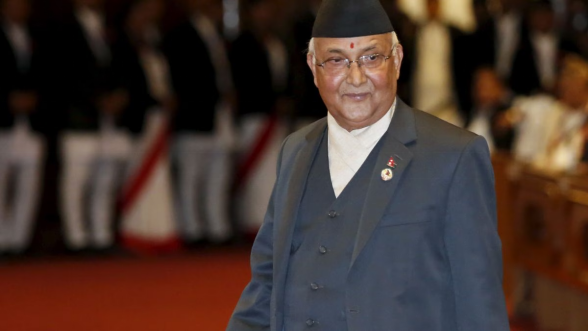
Leader of Nepal’s Largest Communist Party, Khadga Prasad Sharma Oli Named New Prime Minister of Nepal, Succeeding Pushpa Kamal Dahal
Fiona Nanna, ForeMedia News
4 minutes read. Updated 8:56PM GMT Mon, 15 July, 2024
Khadga Prasad Sharma Oli, leader of Nepal’s largest communist party, has been appointed as the new prime minister. This development follows the formation of a new alliance within the country’s turbulent parliament.
On Sunday, the president’s office announced that Oli, aged 72, would take his oath of office on Monday, marking his fourth term as prime minister. Oli succeeds Pushpa Kamal Dahal, whose government, which lasted 18 months, collapsed on Friday. The fall of Dahal’s government came after Oli’s party, the Communist Party of Nepal-Unified Marxist Leninist (CPN-UML), forged a coalition with the center-left Nepali Congress party.
Oli now faces the challenge of securing a vote of confidence in parliament within a month to continue his tenure. The newly formed coalition between CPN-UML and the Nepali Congress holds more than half of the parliamentary seats, which is necessary for a majority vote.
Under this new power-sharing agreement, the prime ministerial position will rotate between Oli and Sher Bahadur Deuba, the 78-year-old president of the Nepali Congress, until the next general election in 2027.
Oli’s political journey began in his teenage years when he was imprisoned for 14 years for his involvement in anti-monarchy campaigns. After his release in 1987, he joined the communist party and steadily ascended through its ranks. His first election as prime minister was in 2015, followed by re-elections in 2018 and a brief reappointment in 2021. Nepal’s parliament has experienced significant instability over the past decade, with frequent changes in government.
Nepal transitioned to a federal republic in 2008, following a civil war that ended with the Maoists joining the government and the abolition of the monarchy. Despite this historic change, political stability has remained elusive, and the country, with a population of approximately 30 million, continues to grapple with severe economic challenges, particularly exacerbated by the COVID-19 pandemic’s impact on its vital tourism sector.
Oli is known for his nationalist views in a country sandwiched between the regional giants China and India. His political stance is perceived to be more favorable towards Beijing, which could influence Nepal’s foreign relations and internal policies.
For more insights into Nepal’s political landscape, check out Nepal’s Political Dynamics and Impact of COVID-19 on Nepal’s Economy.

